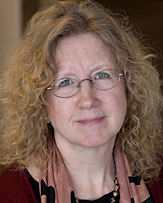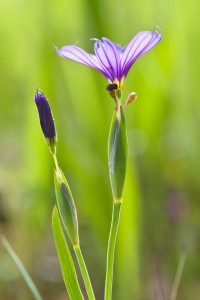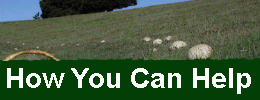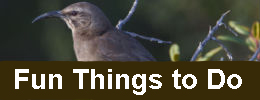The Bay Area is a hotspot for the Slow Food movement. Slow Food started in Italy, a movement aimed at countering the influence of Fast Food by encouraging people to take time to cook and eat meals at home, understand where their food comes from, maybe even grow some of it themselves or buy it from local growers. While everyone likes to grab a quick Fast Food bite once in awhile, Slow Food is about getting back something we lost in turning food into a cheap, high-calorie drive-thru commodity: the whole way that food centers communities and families through sharing the bounty of harvest, eating seasonal fruits and vegetables, cooking together, and talking around the table. It’s about really appreciating food, but also about appreciating our place as human beings—in families, communities, as inhabitants of the natural world that provides our food.
Fast food is all about control: at the drive-thru window, you know that bacon double cheeseburger you order will be identical to the one you ordered last time, and identical to the one the guy in the car behind you is waiting for. Fast food is about making it happen quickly through a particular type of “efficiency”: eating as an assembly-line process, with the consumer at the end of the line wolfing it down as he or she drives away. Uncertainty is minimized: unlike cooking at home, where a dish may turn out a little differently each time depending on the ingredients at hand and the mood of the cook, Fast Food is a sure, safe thing.
Except it’s not. In fact, Fast Food, as we now realize, is loaded with fat and salt and has been a major contributor to the obesity epidemic, which in turn is shortening our lives and reducing the quality of our lives.
How does all this relate to the effort to save Knowland Park? At its root, the struggle over Knowland Park offers similarly contrasting visions. The Zoo’s planned “Conservation Theme Park” vision offers a uniform, safe, Fast Nature version: drive up, pay your money, take an aerial gondola ride to the Interpretive Center, where you will be provided with your Fast Nature package of content aimed at filling you up quickly. The ‘native wild’ animals, being captive, are always there for viewing and it is quite safe to stare at them through the precautionary fences and barriers.
Except it’s not. The danger of Fast Nature is that rather than understanding ourselves as part of the natural world, we take it for a commodity, an object for our control and consumption as viewers. Animals are reduced to ‘specimens’ rather than being experienced as our fellow-travelers on this small, stressed planet. The push to save Knowland Park, in contrast, is about a Slow Nature experience right now accessible even to city dwellers.
Slow Nature means being in a place and experiencing it on a human scale. It means taking the time to notice what grows there, what creatures live and migrate through there, what seasonal changes bring. It means seeing teeming tadpoles in the seasonal wetland in the late spring and perhaps, if we are lucky, the Great Blue Heron that comes to eat them. It means hearing the surviving grown-up frogs singing loudly late on a summer evening. It means noticing the rare, tiny flowers that grow only in one spot in the entire park, in an area where rabbits keep the other growth from crowding it out. It means feeling a little chill down the spine on hearing the howl of a coyote, or watching the hawks hunting gophers in the grasslands. It means hearing nothing but the wind sometimes, and our own breathing.
One day last year, I walked the park with a member of the Zoo Board and a supporter of the theme park expansion project. We passed a group of small children from a nearby day care who ran shrieking with delight up and down Knowland Park’s lovely hills, then stopped to examine intimately a gopher hole or some tiny thing one of them spotted in the grass. They found downed tree branches and dragged them around, chasing one another. They found themselves in Slow Nature and created fun all on their own, making magical discoveries together. I called out a gentle caution to the woman accompanying them as they rushed headlong toward a stand of poison oak.
We left them behind and climbed up toward the ridge overlooking the Zoo. We came upon a scat (animal feces) on the path and I asked one member of our party about it. She identified it as produced by a bobcat. “You have bobcats here?” blurted the Zoo Board member, appearing shocked and perhaps even a little nervous at the prospect.
Slow Nature is like that. It won’t be tamed. There are even things—poison oak, bobcats, even mountain lions–that can scare us and hurt us, though they rarely do. Those things are Slow Nature reminding us that we too, are part of the cycle of life and we do not control it, as Fast Nature seduces us to pretend we do.
In the end, the struggle over Knowland Park is really about whether we can bear to accept our own place in nature by allowing wild ecosystems to thrive so close to us. Fast Nature requires bulldozers and helicopters to construct a controlled drive-up of captive animals displayed like so many bacon cheeseburgers, safely packaged for children who are easily bored and eager to get back on the rides that brought them. Slow Nature is already there right now and requires nothing: it awaits, ready to be discovered, different every time, and just wild enough to remind us who we really are.
 Ruth Malone is a resident of Oakland since 1983, a founding member and co-chair of Friends of Knowland Park and a longtime Oakland neighborhood activist. Since 2007, she has been working to educate and organize environmentalists, park users, and community members to protect the park. In her day job, she is a professor of nursing and health policy at University of California, San Francisco, where she helps students study the links between health and political, social and natural environments, and conducts research on the tobacco industry and its efforts to thwart public health efforts worldwide.
Ruth Malone is a resident of Oakland since 1983, a founding member and co-chair of Friends of Knowland Park and a longtime Oakland neighborhood activist. Since 2007, she has been working to educate and organize environmentalists, park users, and community members to protect the park. In her day job, she is a professor of nursing and health policy at University of California, San Francisco, where she helps students study the links between health and political, social and natural environments, and conducts research on the tobacco industry and its efforts to thwart public health efforts worldwide.
Ruth Malone’s Reflections Blog offers a combination of reflective essays and updates from the Protect Knowland Park Campaign, linking the fight to protect Knowland Park to broader environmental and ethical issues.

 Follow
Follow








Comments are closed.